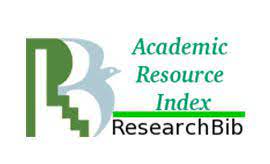THE STRUCTURAL-FUNCTIONAL MODEL OF LEARNING OF UKRAINIAN LANGUAGE FOR PROFESSIONAL ORIENTATIONS OF THE FUTURE PRIMARY SCHOOL TEACHERS AND EDUCATORS
DOI:
https://doi.org/10.51707/2618-0529-2022-23-02Keywords:
competence, linguodidactic approach, synergy, pedagogical modelling, professional speech.Abstract
The article studies the process of pedagogical modelling as a method of scientific cognition. On the basis of the conceptual framework, the algorithm for construction of the experimental model of teaching course “Ukrainian Language for Professional Purposes” to future pedagogical specialists has been developed. According to the algorithm, the main idea and the aim of the model have been formulated, the structural components of the process of teaching the course to future pedagogues have been determined, the objectively existing correlations between the components of the model have been established, and their methodical substantiation and specification have been conducted. Based on the study of the theoretical and methodological works available in pedagogical science, a structural and functional model of teaching “Ukrainian Language for Professional Purposes” has been constructed and visualized. Acknowledging the pedagogical conditions of experimental learning, the author emphasizes the social demand as the main prerequisite for the preparation of future pedagogues. The aim of the modelled teaching process is to form the ability of future pedagogical experts to solve complex specialized tasks and practical problems in professional pedagogical activities, which envisage using a set of competences acquired during ‘Ukrainian Language for Professional Purposes’ course. The synergy of the developed model is emphasized, in particular the signs of dynamism and adaptability, since the model includes the changing social demand prerequisites, legislative reaction to them, and extension of modern linguistic trends and linguodidactic approaches. A set of the didactic approaches to language education, the competence paradigm of the discipline, peculiarities of interdisciplinary coordination, professional adaptation of educational and methodical support, combination of innovative technology and traditional teaching methods, and the activity aspect of professional and communicative preparation have been considered in the process of designing the structural and functional model of teaching ‘Ukrainian Language for Professional Purposes’. The aims of each stage, as well as the main forms and methods increasing the effectiveness of mastering the discipline, have been determined within the phased analysis of experimental learning.
References
Lopatiev, A. O. (2007). Modeliuvannia yak metodolohiia piznannia [Modeling as a methodology of cognition]. Teoriia ta metodyka fizychnoho vykhovannia – Theory and Methods of Physical Education, 8, 4–10 [in Ukrainian].
Pushkar, T. (2013). Modeliuvannia yak teoretychnyi metod rozrobky pedahohichnoi tekhnolohii pidhotovky vchyteliv filolohichnoho profiliu. Pidkhody A. S. Makarenka do vykorystannia pedahohichnoho modeliuvannia [Modelling as theoretical method of the development ofpedagogical technology оf philology teachers’ training. Approaches of А. S. Makarenko to the use оf pedagogical modelling]. Vytoky pedahohichnoi maisternosti – The Sources of Pedagogical Skills, Vol. 11, 273–278 [in Ukrainian].
Saienko, M. S. (2019). Modeliuvannia yak metod naukovoho piznannia, typy modelei [Modeling as a method of scientific knowledge, types of models]. Nauka, osvita, suspilstvo: instrumenty i mekhanizmy suchasnoho innovatsiinoho rozvytku – Science, Education, Society: Tools and Mechanisms of Modern Innovation Development : Proceedings of the V International Scientific and Practical Conference, March 29–30, 2019, Kyiv, (pp. 129–131). Kyiv [in Ukrainian].
Yelnykova, H. V., Maslov, V. I., Chmil, A. I., Fedorov, H. V., & Zaichenko, O. I. (Eds.). (2010). Teoretychni i metodychni zasady modeliuvannia fakhovoi kompetentnosti kerivnykiv zakladiv osvity [Theoretical and methodical bases of modeling of professional competence of heads of educational institutions]. Кyiv ; Chernivtsi : Knyhy–ХХІ [in Ukrainian].
Kremen, V. H. (Eds.). (2008). Entsyklopediia osvity [Encyclopedia of Education]. Kyiv : Yurinkom Inter [in Ukrainian].
Sikora, Ya. B. (2005). Strukturno-funktsionalna model formuvannia profesiinoi kompetentnosti maibutnoho vchytelia informatyky [Structurally-Functional Model of Forming of Professional Competence of Future Teacher of Informatics]. Visnyk Zhytomyrskoho derzhavnoho universytetu imeni Ivana Franka – Zhytomyr Ivan Franko State University Journal, 47, 171–175 [in Ukrainian].
Shypovych, M. V. (2012). Strukturno-funktsionalna model formuvannia hotovnosti maibutnikh uchyteliv pochatkovykh klasiv do samoosvitnoi diialnosti [Structural and functional model of forming the readiness of future primary school teachers for self-educational activities]. Studentskyi almanakh – Student Almanac, 8. Retrieved from http://umo.edu.ua/images/content/nashi_vydanya/stud_almanah/ [in Ukrainian].
Andriievskyi, B. M. (2011). Prohnostychnist yak kryterii efektyvnosti pedahohichnykh tekhnolohii [Predictability as a criterion for the effectiveness of pedagogical technologies]. Naukovyi visnyk Uzhhorodskoho natsionalnoho universytetu. Seriia “Pedahohika. Sotsialna robota” – Scientific bulletin of Uzhhorod university. Series “Pedagogy. Social work”, Vol. 23, 9–11 [in Ukrainian].
Teplytska, A. O. (2015). Model i modeliuvannia v profesiinii osviti maibutnikh uchyteliv [Model and modeling in professional education of the future teachers]. Dukhovnist osobystosti: metodolohiia, teoriia i praktyka – Spirituality of personality: methodology, theory and practice, 6, 181–191 [in Ukrainian].
Lodatko, Ye. O. (2011). Pedahohichni modeli, pedahohichne modeliuvannia i pedahohichne vymiriuvannia: that is that? [Pedagogical models, pedagogical modeling and pedagogical measurement: that is that?]. Vyshcha osvita Ukrainy – Higher education in Ukraine, Vol. 3, Т. 1, 339–344 [in Ukrainian].
Dubaseniuk, O. A. (2008). Kontseptualni modeli pedahohichnoi osvity: naukovi poshuky ta zdobutky [Conceptual models of pedagogical education: scientific research and achievements]. Profesiino-pedahohichna osvita: suchasni kontseptualni modeli ta tendentsii rozvytku – Professional and pedagogical education: modern conceptual models and development trends. O. A. Dubaseniuk, O. Ye. Antonova, S. S. Vitvytska, N. H. Sydorchuk, O. M. Spirin, N. V. Yaksa (Eds.). Zhytomyr : Vydavnytstvo Zhytomyrskoho derzhavnoho universytetu imeni Ivana Franka [in Ukrainian].
Drohaitsev, O. I. (2017). Vydy isnuvannia informatsii u navchalnomu protsesi [Types of information in the educational process]. Aktualni problemy filolohii i metodyky vykladannia mov – Current issues of philology and methods of teaching languages : Scientific works collection. Kryvyi Rih, Vol. 12, 190–195 [in Ukrainian].
Yankovskiy, S. Kontseptsii obshchey teorii informatsii [Concepts of general information theory]. Vseukrainskaya assotsiatsiya poligrafologov – All-Ukrainian Association of Polygraphists. Retrieved from https://polygraph.ua/ru/jankovskij-s-koncepcii-obshhej-teorii-informacii/ [in Russian].
Humeniuk, I. M. (2019). Kompetentnisna linhvodydaktychna paradyhma yak kintsevyi rezultat navchannia ukrainskoi movy za profesiinym spriamuvanniam [Linguodidactic competence paradigm as the end result of teaching Ukrainian language for professional purposes]. Naukovyi visnyk Lotnoi akademii. Seriia “Pedahohichni nauky” – Scientific Bulletin of Flight Academy. Section “Pedagogics”, 6, 190–194 [in Ukrainian].
Downloads
Published
How to Cite
Issue
Section
License
Copyright (c) 2022 Scientific notes of Junior Academy of Sciences of Ukraine

This work is licensed under a Creative Commons Attribution 4.0 International License.













